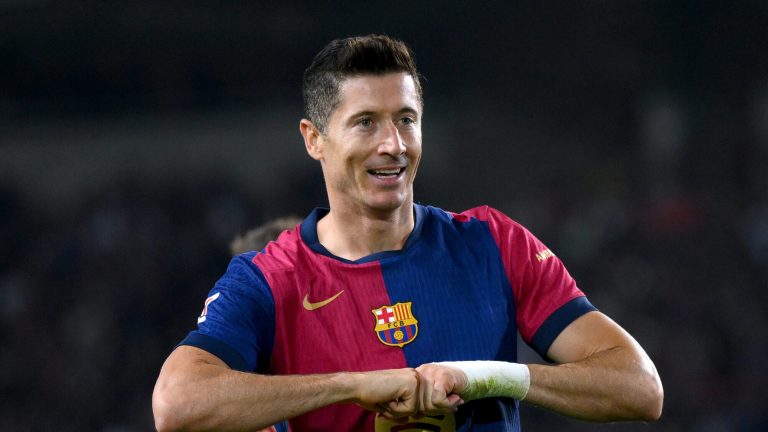German football has known many great names, but only one team has managed to turn each decade into a showcase of achievements. The history of FC Bayern Munich is not just a chronology of victories, but a journey from a Munich initiative to a global symbol of discipline, efficiency, and sporting dominance.
The Beginning of FC Bayern Munich
The early 20th century. German football is still taking shape, and in Munich, a group of enthusiasts with progressive thinking founds FC Bayern Munich. On February 27, 1900, after a conflict with “Munich SC,” eleven members leave the union and create a team of a new format. Thus began the history of FC Bayern Munich – from an ideological split, not from praises.
The team quickly gains popularity: by 1910, it wins the Bavarian championship, forming not only the playing base but also the organizational culture. In 1932, it becomes the champion of Germany, defeating “Eintracht” with a score of 2:0. This success was not the result of budget injections but of finely tuned tactics and discipline on the field. But soon it faces what would later be called the “period of oblivion.”
War, Nazism, and Survival: the Dark Chapter in the History of FC Bayern Munich
With the rise of Nazism, the team loses many leaders – Jewish president Kurt Landorf leaves, Jewish players leave the country. The regime does not recognize the club’s progressive structure. The role of political pressure is felt not only in the stands: sanctions affect finances, transfers, coaches. The team goes through a decade of survival, not development.
During World War II, it loses its infrastructure: the stadium is destroyed, training processes are paralyzed by mobilization. FC Bayern Munich does not enter the “Gauliga,” the elite league of Nazi Germany. The club loses its status, players, reputation. Veterans return to the ruins.
Rebirth: From Ruins to Glory
1945. The USA occupies Munich. The team is reborn from scratch. In 1957, it wins the German Cup, defeating “Fortuna Düsseldorf.” The first spark of a new path. Further progress does not look like a triumph – the team continues to stay outside the Bundesliga until 1965 when it secures the coveted spot in the elite league.
With the arrival of Udo Lattek in 1970, the golden age begins. In 6 years, the team wins three consecutive UEFA Champions League titles (1974–1976). It wins the German championship twice, forming a core of players like Gerd Müller, Franz Beckenbauer, and Sepp Maier. This trio are legends of FC Bayern Munich, players who defined the tactics of all European football.
Numbers, Names, Titles: The Club as a Machine of Achievements
Titles and numbers here are not just decoration but evidence of systematic superiority. Each trophy is the result of precise strategy and flawless execution.
The period from the 1970s turns into a series of records:
- 33 Bundesliga titles;
- 20 German Cups;
- 6 UEFA Champions League victories;
- 2 UEFA Super Cup trophies;
- 2 Club World Cup wins.
At its peak – the 2012/13 season. Under the guidance of Jupp Heynckes, the team achieves the treble: league title, cup, Champions League. The goal-scoring dominance reaches 151 goals scored in a season. This figure is the highest point of the team’s efficiency in the 21st century.
Players, Coaches, Presidents: Architects of Success
Playing power, managerial foresight, and tactical intelligence form the foundation of the team’s success. The history of the club is a chain of decisions made by leaders on the field, on the bench, and in the office.
Each era of FC Bayern Munich is based on charisma and intellect:
- Coaches of FC Bayern Munich: From Ottmar Hitzfeld to Josep Guardiola – strategists who introduced the philosophy of dominance and tempo control.
- Presidents: Franz Beckenbauer and Uli Hoeneß created a unique organizational model where commerce, academy, and management are integrated into a single system.
- Players: from Matthäus to Müller, from Kahn to Neuer – names that have become symbols of eras.
Each of them not only performs their function but sets the direction for the entire football system. It is thanks to the synchronous work of players, coaches, and presidents that the club maintains stability, winning in conditions where others falter.
Tactics, Derbies, Nicknames: Character in Details
The team’s tactical model is based on ball control, fast flanks, and vertical pressing. The distinctive feature is aggressive transition to attack, numerical advantage in the penalty area, and playing at a high tempo.
The history of FC Bayern Munich intertwines with the rivalry with Borussia Dortmund. “Der Klassiker” is not just a derby but a clash of two worldviews: capital against traditions, structure against improvisation.
The club’s nicknames: “Die Roten” – for the colors, “Superclub” – for the stable trophies, “Goal Machine” – for effectiveness.
Finances, Sponsors, and Brand: The Economy of FC Bayern Munich’s Victories
History proves that sporting results are inseparably linked to the economy. The model of sustainable growth includes three pillars: independence from external investors, highly effective marketing machinery, and income diversification.
Among the key partners are Adidas, Audi, and Deutsche Telekom. Each of them not only invests but shapes an ecosystem around the brand. The revenue for the 2022/23 season exceeded 750 million euros, with 55% coming from commercial sources. Moreover, the club maintains the legal form of a registered association – a unique case among European giants.
Stability allows focusing not on selling players but on long-term transfers: the purchase of Manuel Neuer in 2011 for 30 million euros became one of the most accurate capital investments in the history of German football.
Records and Statistics
Every number in the team’s history serves as an argument for its undisputed leadership. The achievements of FC Bayern Munich are documented through impeccable statistics:
- Most goals in a single season – 101 (1971/72).
- Longest winning streak in the Bundesliga – 19 matches (2013/14).
- Record points in a season – 91 (2012/13).
- Biggest victory in the championship – 11:1 against Fortuna Düsseldorf (1984).
The 2020/21 season ends with a unique result: 99 goals in the championship, with 9 players scoring more than 5 goals. These data confirm not only the level of individual mastery but also the depth of the squad.
Fans, Stadium, and Traditions
FC Bayern Munich is not just a club but a cultural institution. Each home match gathers up to 75,000 spectators at the Allianz Arena. The stadium is an architectural symbol of Munich and one of the most technologically advanced facilities in Europe: dynamic lighting, heated pitch, ventilation system with ISO filtration.
The team’s path is closely linked to the fans: around 3000 fan clubs worldwide and over 300,000 registered members. This is the highest figure among all football organizations on the planet.
Traditions include an annual squad presentation at Marienplatz, free entry for children under 6, and a mandatory meeting of veterans with the youth team before the start of the season.
Victories, Defeats, and Season Philosophy
The team does not define success at the level of individual matches – each defeat turns into a hypothesis, and each victory into an algorithm. After a humiliating 2:5 defeat to Schalke in 2001, coach Ottmar Hitzfeld restructured the defense, launching a cycle of 9 unbeaten matches in a row.
Each season is a completed chapter, not an endless race. This logic makes it systematic: the goal is not just to win but to dominate.
International Recognition: From Europe to the World
The club consistently strengthens its position beyond Germany. In 2013, FC Bayern Munich wins the UEFA Super Cup, defeating Chelsea on penalties. In 2020, it wins the Club World Cup final, scoring the winning goal against Mexican Tigres in the 59th minute.
With each international match, the history gains a new facet: from the conflict of 1900 to the global status of a brand known in Africa, the USA, Asia.
The History of FC Bayern Munich Continues to Take Shape
The history of Munich’s FC Bayern Munich is not just a series of victories on the field but a systematic approach to achieving greatness. Here, every element, whether a scored goal, daily training, or a president’s decision, fits precisely into the overall strategy. The club’s success is not based on luck but on unwavering discipline, methodical analysis, and flawless transfers. FC Bayern Munich not only follows football trends; it sets them, constantly refining tactics, nurturing new generations of stars, and thereby redefining the very essence of victory.













